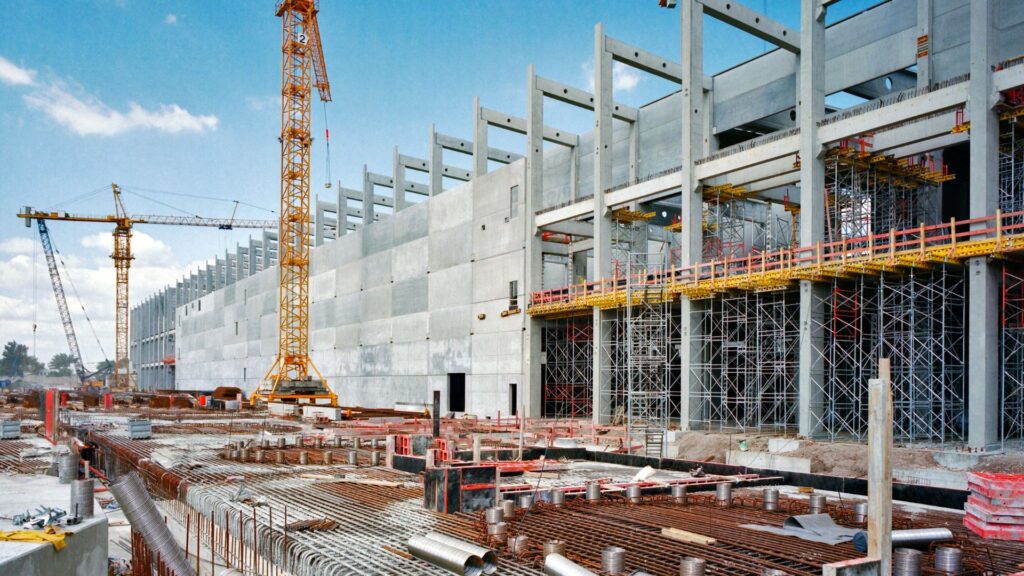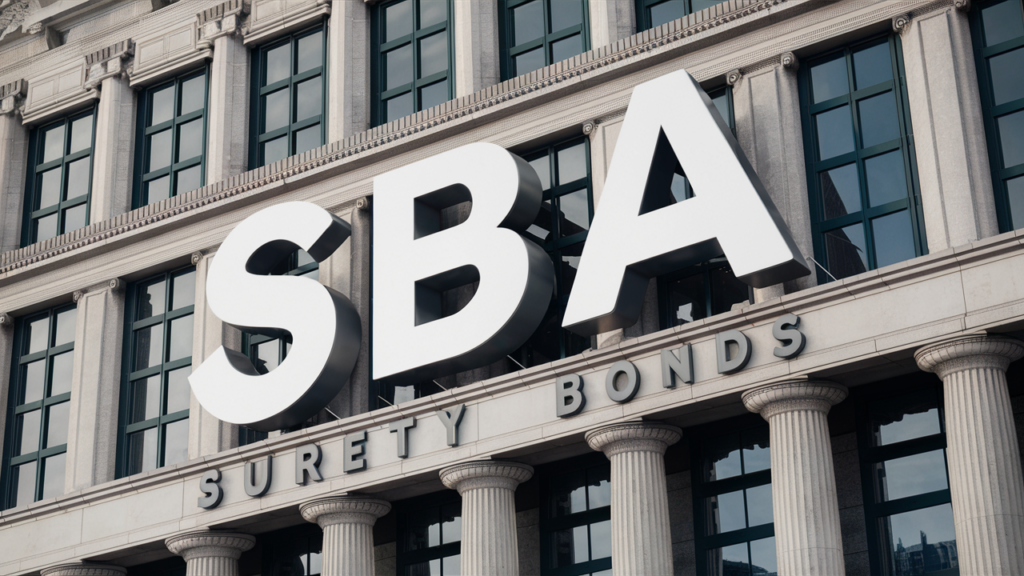Getting a construction surety bond may seem hard, but it’s important for large-scale building projects. These bonds act like a promise – they guarantee that the job is done correctly and that everyone involved is treated fairly.
Here’s why you might need one: it’s your way of building trust with those who hire you and showing you’re committed to quality work. In many cases, governments and municipalities require bonds to bid on the project. Surety bonds are important for project completion. Choosing the right surety bond is crucial for the success of your project.
We made a simple guide to help you understand everything you need to know about these bonds. It covers the types, how to apply, and tips to increase your chances of approval.
This guide can help you understand surety bonds and choose the best one for your next project. It is useful for those in charge of a big construction team or a small business.
Table of Contents
Understanding the Role of Surety Bonds in Construction
Surety bonds are like a safety net in the construction world. They’re there to make sure contractors do what they promise, like finishing jobs the right way and sticking to the contract.
Bonds are important for protecting people paying for a project. They also make sure to pay everyone involved in the work. Additionally, bonds help in keeping the project on budget and schedule.
When project owners ask for a surety bond, it’s like they’re making sure their project is in good hands. It reduces stress and worry about the project going wrong and helps everyone feel more confident about working together.
The Importance of Surety Bonds in Construction
Building Trust and Confidence
At the heart of any successful construction project is trust. Surety bonds play a pivotal role in forging this trust between project owners and contractors. They offer a solid promise to the project owner that the contractor has the financial backing necessary to see the project through to completion. This assurance is crucial in creating a stable and reliable working relationship.
Ensuring Project Completion
One of the key benefits of surety bonds is their ability to ensure that a project stays on track — both in terms of budget and timeline. Contractors are financially obligated to meet their contractual duties, which includes completing projects as agreed. This commitment minimizes delays and budget overruns, making surety bonds indispensable in the construction process.
Mitigating Risks
Construction projects come with their fair share of risks, from unexpected delays to financial instability. Surety bonds act as a safeguard, protecting project owners from potential financial losses if a contractor is unable to fulfill their obligations. This level of protection is essential for the smooth execution of any project.
Boosting Contractor Credibility
For contractors, obtaining a surety bond is more than just a regulatory requirement — it’s a mark of reliability and professionalism. It demonstrates to project owners that they are collaborating with a reliable partner. This can open up opportunities for more prestigious projects. These projects may include government-funded ones.
Financial Protection for Project Owners
Surety bonds provide extra financial protection for project owners, especially in the public sector like local governments and municipalities. In the event of contractor default, the bond ensures that funds are available to complete the project, thereby safeguarding public investments.
10 Signs You Need A New Surety Agent
Access our free guide and discover ten red flags that you might be better off with a different Surety Bond Agent
LEARN MOREDifferent types of surety bonds used in construction
There are various types of surety bonds used in the construction industry, each serving a specific purpose. Here are some of the most common types of surety bonds:

Bid Bonds
Bid bonds are used in construction to make sure a contractor will sign a contract and provide any corresponding performance and payment bonds if they win a project. This type of bond ensures that the contractor follows through with a bid. It is a guarantee that the contractor will accept the job if they are chosen.
Bid bonds are a common requirement in public works projects. The municipality (federal, state, city/county, etc.) requires a bond from bidding contractors. The limit ranges between 5% and 20% of the bid amount. This limit is designed to compensate the owner for using the second highest bidder, when the lowest bidder is unable to provide performance and payment bonds.
Bid bonds ensure only qualified contractors participate in the bidding process. Contractors must go through an underwriting process and have the financial strength to secure a bond.
Performance Bonds
A performance bond is a type of bond that ensures a contractor will finish a project as agreed in the contract. These bonds provide protection to the project owner in case the contractor fails to fulfill their obligations, such as completing the project on time, within budget, and with the specified level of quality.
By requiring a performance bond, the project owner can have peace of mind knowing that they will be compensated for any financial losses incurred due to the contractor’s failure to meet the project requirements. This may require hiring a new contractor to complete the project and addressing any issues caused by delays or subpar work. They may need to pay for the services of a different contractor to finish the job. Additionally, they will have to fix any problems that arose due to delays or low-quality work.
Performance bonds also benefit the contractor by demonstrating their commitment to completing the project as agreed. By obtaining a performance bond, their surety bond carrier is essentially vouching for their client’s ability to deliver on their promises and meet the project requirements. This can help build trust with the project owner and potentially lead to future business opportunities.
Overall, performance bonds play a crucial role in ensuring the successful completion of construction projects by holding contractors accountable for their work and providing financial protection to project owners.
Payment Bonds
Payment bonds are a type of surety bond that are put in place to protect subcontractors and suppliers in the construction industry. These bonds guarantee that these parties will be paid for the work and materials they provide, even if the contractor defaults on payment. Bonds ensure subcontractors and suppliers security get paid for their work.
In the event that the contractor fails to make payment, the surety company that issued the bond will step in to cover the costs, up to the bond amount.
This helps to mitigate the financial risks associated with working on construction projects and provides peace of mind for subcontractors and suppliers. Payment bonds are typically required on public projects.
Maintenance Bonds
Maintenance bonds are a type of surety bond that is put in place to guarantee the quality of work for a specified period after a construction project is completed. Typically, performance bonds (and the underlying contract) have a warranty of one or two years. Maintenance bonds can be issued on a stand-alone basis or for longer periods than required by the initial contract.
It ensures that any problems during the maintenance period will be fixed by the contractor for free. This protects the project owner from paying for repairs or maintenance right after the project is done.
License and Permit Bonds
License and permit bonds are needed by individuals and businesses to obtain licenses and permits for construction projects. These bonds are required by law.
They ensure that the project will be completed according to regulations and standards. Without these bonds, licenses and permits may not be granted. These bonds ensure that the bonded party follows all rules and laws for the license or permit they want.
In the construction industry, license and permit bonds are commonly required for contractors, subcontractors, and other professionals involved in building projects. Bonds protect the public and ensure that the bonded party fulfills their obligations. These obligations include finishing the project as agreed, following safety rules, and paying subcontractors and suppliers.
Failure to obtain the necessary license and permit bonds can result in fines, penalties, and even the suspension or revocation of the license or permit. It is important for individuals and businesses in the construction industry to understand the requirements for license and permit bonds in their area and to obtain the necessary bonds to remain in compliance with the law.
Government Requirements for Construction Bonds

A significant aspect of the construction industry is its regulatory environment, especially when it comes to projects funded by governments and municipalities. For these projects, obtaining construction surety bonds is not just a recommendation—it’s often a strict requirement. This mandate underscores the critical role these bonds play in ensuring the integrity and success of public construction initiatives.
Governments and local governments have a responsibility to safeguard public funds. They must ensure that construction projects adhere to regulations, are completed on schedule, and do not exceed the allocated budget. Construction bonds are a key tool in this process, providing a financial guarantee that contractors will adhere to their commitments. In the event of a failure to comply, the bonds offer a mechanism for financial recourse, ensuring that projects can be completed without additional burdens on taxpayers.
By requiring construction bonds, public entities level the playing field for all contractors vying for projects. These requirements ensure that only serious and financially stable contractors enter the bidding process, which helps in maintaining fair competition. It also encourages smaller contractors to compete, as the bond signals to project owners that they are capable and reliable, even if they might not have the same track record as larger companies.
The most common types of bonds required by governments and municipalities include bid bonds, performance bonds, and payment bonds. Bid bonds ensure that contractors honor their bids, performance bonds guarantee the completion of the project according to the contract, and payment bonds assure that subcontractors and suppliers are compensated. This trio forms a comprehensive safety net, protecting the interests of all stakeholders involved in public construction projects.
Where To Get A Surety Bond
Navigating the path to securing a construction surety bond can be made easier with the right guidance and expertise. Here are some strategies for finding trustworthy surety bond providers in your neighborhood:
Leverage Surety Bond Companies
A surety bond broker can be your navigator through the complexities of obtaining a bond, helping you identify the best options tailored to your project. They’re experts in matching your needs with the right bond provider.
Partner with Evergreen Surety
Evergreen Surety has a lot of experience in giving construction companies the surety bonds and bond capacity they need. Their deep understanding of the industry’s unique requirements makes them a valuable ally in your bonding process.
Prioritize Experience and Success
Seek out bond providers with a strong background in construction and a proven track record of supporting projects to completion. Their experience can be a critical factor in your project’s success. Experience is kind when choosing surety bond agencies.
Compare Offers From Bond Surety Companies
Utilizing a broker allows you to compare different quotes and terms from various providers, ensuring you secure the most favorable deal possible for your bond.
Assess Financial Strength and Reputation
Choosing a provider with a solid financial foundation and a reputable standing in the industry is crucial. Providers specializing in construction offer advantages, such as better understanding your needs compared to general insurance companies.
By enlisting the help of seasoned professionals and reputable surety bond providers, you can navigate the bonding process more smoothly and ensure your construction projects proceed without a hitch.
The Application Process for Construction Surety Bonds

Applying for construction surety bonds may seem overwhelming at first. However, breaking the process down into smaller steps can make it easier to understand. This can also help in completing the application more efficiently. Let’s walk through the essentials of applying for a construction surety bond so you can purchase a surety bond.
Getting Your Finances in Order
Start by rounding up all your important financial paperwork. This includes tax returns, bank statements, and up-to-date financial reports that paint a picture of your financial health. These documents are critical—they’re your first step in demonstrating to surety providers that you’re financially stable and a good candidate for a bond.
Navigating the Application Forms
Next, dive into the application forms with a clear head. Evergreen Surety is here to guide you through each part of these forms, making sure you understand what’s being asked. You’ll need to provide details about your professional experience, your company’s work history, and any notable projects you’ve completed. Filling out these forms accurately and honestly is crucial—they’re the foundation of your application.
What Happens During Underwriting
The underwriting phase is where the rubber meets the road. Surety companies will take a close look at everything from your financials to your project track record.
They’re assessing your overall ability to meet your project commitments under the bond. Be prepared to share additional information, like project references or detailed financial statements. This thorough evaluation is designed to ensure you’re a solid fit for the surety bond you’re applying for.
Evergreen Surety is your ally throughout this entire process. We’re here to demystify the forms, offer expert advice, and respond to any questions that arise, ensuring you feel supported at every turn.
By preparing diligently, understanding what’s expected of you, and engaging with a knowledgeable surety bond provider, you can tackle the application process with greater ease and confidence.
Strategies for Securing Your Surety Bond Approval
Ensuring your surety bond application gets the green light involves a few strategic moves. Keeping your finances in impeccable order, building a strong relationship with your surety agent, and keeping your bond details up to date are key steps. Here’s how to tackle each aspect effectively:
Keep Your Financial House in Order
The cornerstone of a successful bond application is your financial health. Make it a habit to meticulously record every financial transaction and track project costs closely.
Regularly update your financial statements to reflect your current status accurately. Adopting rigorous accounting practices ensures your financial activities are transparent and precise. Also, keeping a keen eye on your cash flow is crucial for meeting your financial obligations and maintaining a healthy level of liquidity. Documenting your project successes thoroughly will serve as a valuable reference for future bond applications.
Cultivate a Strong Partnership with Your Surety Provider
Open and honest communication with your surety provider can significantly enhance the trust between you. Discuss your project’s progress and any potential risks openly. Seeking advice on increasing your bonding capacity and responding swiftly to requests for information can fortify your relationship.
Working together to navigate project hurdles shows your commitment to successful outcomes. At Evergreen, we pride ourselves on designing bond programs that perfectly fit the construction industry’s needs.
Regularly Review and Adapt Your Bond to Fit Your Needs
It’s important to periodically evaluate your bond needs, especially as your projects evolve. Stay informed about industry shifts that could affect your bonding requirements and adjust your bond accordingly to align with your business’s growth and the complexity of your projects. Regular discussions with your surety provider ensure your bond remains relevant and supports your current and future projects.
Building a strong bond with your surety partner is important to us at Evergreen. We are committed to supporting you throughout the process. We want to earn the right to be your surety bond agent. We know surety bond services are critical to your company’s growth, and we will help you understand the terms and conditions of the right bond program for you.
Dealing with Denials and Delays in Surety Bond Approval

Facing denials or delays when applying for surety bonds can feel like a setback, but it’s often part of the journey toward securing the right bond for your project. Understanding the typical reasons behind these hurdles and knowing how to address them can turn the situation around. Let’s explore how you can effectively deal with denials and delays:
Common Reasons Behind Application Challenges
Several factors can lead to your surety bond application being turned down, including:
Incomplete financial documentation: This is a critical component, as it demonstrates your financial health.
- Limited experience: A track record of successful projects can significantly impact your application’s success.
- Poor credit history: Your credit score is a reflection of your financial reliability.
- Regulatory non-compliance: Adhering to industry standards is non-negotiable.
- Lack of transparency: Full disclosure during the application process is essential for trust.
Addressing these areas by maintaining thorough financial records, building a solid project portfolio, keeping your credit in good standing, complying with all regulations, and being open in your communications can greatly improve your chances of approval.
Navigating Denials or Delays
If you encounter a denial or delay when you go to buy your surety bond, take these steps:
Understand the Reason: Work closely with your surety insurance company to understand why your application was denied or delayed.
- Gather More Information: Sometimes, additional documentation can strengthen your position.
- Present Your Case: Clearly highlight your strengths and any improvements or mitigations you’ve put in place.
- Seek Professional Advice: In some cases, consulting with legal counsel can help navigate the appeals process effectively. Your surety agency can also provide guidance.
- Stay Proactive: Keeping up with your appeal and maintaining communication can expedite the resolution and help you land your contractor bonds.
Leveraging Insurance Agents’ Expertise
Specialized insurance agents who focus on surety bonds can be invaluable in this process. They offer expertise in meeting bonding requirements and act as a bridge between contractors and surety providers. These agents assess your bonding needs, identify the best options available, and use their industry knowledge and connections to your advantage.
At Evergreen Surety, we position ourselves as your knowledgeable ally, ready to provide support and guidance whenever you need it. Trusting in the expertise of insurance agents specialized in surety bonds can smooth out the bonding process and enhance your chances of success.
How Can a Contractor Increase Their Chances of Securing a Construction Surety Bond?
Getting a construction surety bond is important for contractors to build credibility and trust in the industry. Here are strategies to enhance your chances of obtaining the bond you need for your projects:
Strengthen Your Financial Health
Improving your company’s cash flow and reducing outstanding debts are foundational actions that can significantly increase your bond capacity. A healthy financial status not only showcases your ability to manage finances effectively but also reassures surety providers of your reliability and stability.
Build a Strong Track Record
Delivering projects within the agreed timeline and budget enhances your reputation in the industry. Completing projects successfully shows you are committed and capable, making you a better candidate for surety bonds.
Invest in Continuous Improvement
Staying updated with the latest industry practices through training and certifications can set you apart from the competition. Improving your team’s skills and knowledge is important for project success. It also demonstrates to surety providers that you are dedicated to maintaining high standards.
Foster Positive Relationships
Building and maintaining strong relationships with all project stakeholders, including suppliers, clients, and subcontractors, can have a profound impact on your business’s reputation and operational success. These positive relationships can lead to more opportunities and endorsements, further strengthening your application for surety bonds.
Seek Expert Guidance
Consulting with experienced insurance agents who specialize in surety bonds can provide you with tailored solutions to enhance your bond approval chances. These professionals can offer insights into improving your financial practices, optimizing your operations for better project delivery, and navigating the bonding process more effectively.
Frequently Asked Questions
What Is a Surety Bond?
A surety bond is a three-party agreement that provides financial security and guarantees the fulfillment of specific obligations. The parties involved are the obligee (the project owner), the principal (the contractor), and the surety (the company providing the bond). This bond acts as a safety net, ensuring that the obligations outlined in a contract are met. If the principal doesn’t do their job, the surety bond pays the obligee to make up for any financial losses.
What Purpose Does a Surety Bond Serve?
Surety bonds fulfill several crucial functions in the construction industry. Construction project managers ensure that projects are completed according to the agreed-upon terms. They protect owners from financial losses in case a contractor fails to finish the job or meet contract terms.
Moreover, these bonds ensure that subcontractors, laborers, and suppliers receive compensation, even if the contractor defaults on payments. Financial assurance is needed to bid on projects.
This requirement is mandated by the government. It is meant to protect the public interest and investments in infrastructure projects. This applies to both public and private projects.
What Are the Key Factors to Consider When Choosing a Surety Bond Company Nearby?
Selecting the right surety bond company is essential for the smooth execution of construction projects. Here are some key considerations:
- Reputation and Experience: Opt for a company with a solid reputation and extensive experience in the construction industry. Their track record can give you insights into their reliability and the quality of support they offer to contractors.
- Competitive Rates and Favorable Terms: Compare rates and terms offered by different surety companies. Look for competitive pricing and conditions that align with your project needs and financial capabilities.
Ensure that the surety company holds a license and authorization to operate in your jurisdiction for Licensing and Authorization. This is critical for the bond to be valid and recognized by project owners and government entities.
Conclusion
In the realm of construction, understanding and securing surety bonds is essential for project success. Finding a surety bond near me can be a critical step in the process of landing big government contracts. These bonds not only instill confidence but also protect all parties involved.
- Keep good financial records.
- Build a good relationship with your surety provider.
- Update your bond regularly.
These steps can improve your chances of approval. In cases of denials or delays, knowledge of common reasons and the appeals process is key.
Specialized insurance agents can also offer valuable guidance. To navigate the intricacies of surety bonds effectively, stay informed, prepare diligently, and seek assistance when needed.
Call a bond agent to help find the right surety bond solution near you today! In the meantime you should download our free report…




